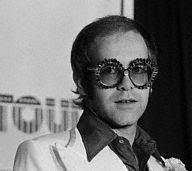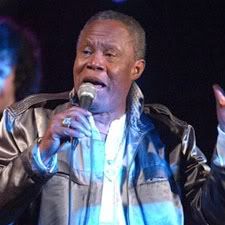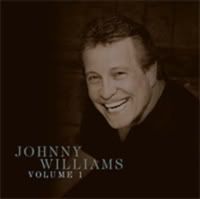"I am deeply suspicious of the way its fans talk about it. This has seeped into the wider discourse too - the emotional angle is by no means restricted to the devotees, experts and critics."
Essentially, the writer questions the way in which we see the concept of 'soul music'. Do we turn it into something it isn't?
"[Are] we are talking about heartfelt emotions, raw passion, a sincerity of feeling, expressed from the heart in natural ways. I am very doubtful, though, that this has anything to do with soul music and what makes it so wonderful..."
Do I confuse the singer on the stage with the character of the song, and come to believe that I am witnessing real emotion when somebody sings?
"...We aren’t hearing the real emotions of the performers - no one has three minutes of heartbreak, then three of anger at betrayal, then three of having a party, then three of being deeply in love…"
I think that is a little bit too reductionist. Everybody should be able to recognise that they are being entertained, not necessarily receiving a confession. But it would hardly be emotionally satisfying for the audience if the performer didn't have the ability to make us feel the emotion held within the song itself. I tend to think that soul fans are perhaps less not more likely to confuse the singer with the song than people who perhaps enjoy indie music, where the concept of the 'singer-songwriter' puts a much greater emphasis on the illusion that we are listening to the self-written personal thoughts of the artist as a visionary poet.
Martin did have an interesting anectdote to counter my certainty, taken from the Yahoo Southern Soul Group:
"I particularly remember their reactions to a new published interview with Sam Moore of Sam & Dave. He expressed a liking for various people, by no means all soul types or ‘credible’ artists. Elton John was the name that agitated them most - they were trying to make excuses, looking for a hidden agenda, wondering if there was talk of Elton writing a song for him or working with him. They couldn’t believe that a soul giant could really like Elton’s music, which is surely the obvious and completely plausible explanation..."
This behaviour I recognise, and I agree it should be discouraged. It is quite common for those who find out about soul music of the era for the first time to treat it reverentially, like an exclusive club to which only the true member may join - to the extreme of guarding it from perceived 'outside' influences (even against poor Reggie Dwight, who played piano with Major Lance, Doris Troy, the Bluebells and dozens more r&b acts who toured the UK in the 60s. Go and find a record by Long John Baldry & Bluesology to get an idea of that...). Yet we don't make the music - how can we say what it should be? Get out there and make some music yourself, then you can make it what you want it to be! Fortunately, it is an attitude that people grow out of with time and experience.


Soul Men: Sam & Reggie. Why not! I suggest Don't Go Breaking My Heart, in a real slow, relaxed tempo, country soul ballad in style. There, I said it, I won't take it back, and you can't make me!
Do people focus so much on the emotional impact of the music that they do not give the professional skill and the talent of the performers and musicians enough credit? Martin does have one more warning to give us to ponder, likening the way he has observed others discuss soul music as akin to the way people describe African footballers:
"The talk is of passion and raw emotion, an innate access to feeling, and not of intelligence and musical technique... It doesn’t take a vast amount of insight to spot the racism in all of this..."
Certainly, it is undeniable that I love the way the music feels. Sometimes, when I personally write about the music, I describe the sensations when a certain moment in the music kicks in. But I'm not sure that that in itself is inappropriate. After all, the feeling we get is why we listen to music in the first place. And it is one of the very real motivations behind the making of all kinds of popular music. Soul music, like all others, was and is a business. But if you were going to make a living from it, you had to get good at listening out for the things that appealed to your audience, and you had to practice and work hard at perfecting your delivery and routine to make people turn out and pay for a ticket, and to get booked at the next town along on the road. In a sense, describing the emotional impact of music is a way of celebrating the effort and honing of the performers' art, using layman's terms that we can all relate to. I do think that there should be more effort put in to documenting and describing the technical elements that go into producing soul music. I for one know that I simply do not possess the knowledge and musical ability to do so. But I can appreciate a good professional performance and a well-crafted song.
Martin takes as an example Al Green's cover version of the Bee Gees song How Can You Mend A Broken Heart?, and describes with eloquence the techniques the Rev. Green uses to 'inject' a sense of emotion into the song:
"This isn’t the natural outpouring of romantic pain; it’s not even method acting, where he deliberately feels it and so expresses it; this is the work of a powerful musical intelligence, who has carefully thought about every moment of the song, every word, every sound, and has calculated how to make it work with maximum effect."
Every word of this is correct, and well said. However, I have to wonder, in getting up to go to work each day at the Royal Studio, and picking out songs to record, surely somebody was thinking in some small way,"Hey, I like this song, it kind of reminds me of when ..." I started to think: has Martin in some way created a straw man to knock down when he defines the emotional content thus:
"I don’t believe that all he [Al Green] is doing is expressing how he feels, if he is doing that at all; he is finding ways to express what this lyric and song feels like, he is putting those emotions into the song, irrespective of how he might have personally felt at the time it was recorded."
The distinction Martin makes is that between the true emotions of the musicians, and the emotional effect that they imbue the song with. While at first I was sure this was obvious to all, I wonder if it is so obvious, when people come to listen with their own mind-sets and prejudgements. A lot of people like hearing the Supremes come on at a family disco; not all of them are going to be paragons of virtue. I start to see where soul fans can go wrong in assuming that the music in itself will neccessarily change people's attitudes.
"I just think the gap between the way people talk about music and the way it’s actually made is greater in soul music than any other, and I think the musical skill and intelligence on show in its many great recordings are therefore persistently undervalued, or even not noted at all."
I know that in general, soul fans are always eager to sit and listen to stories of the people who made the music, without the more ghoulish aspects of our modern-day paparazzi-style veneration of celebrities. While the emphasis in pop and rock culture is to read about the after-show parties, and drink and drug binges, it is quite other with soul. We spend countless hours pondering just exactly how the 'Stax sound' was created, trying to find out just what is a 'head arrangement', and tracing all of the doings of those fabulous rhythm sections from all over who created such music. Martin gives an excellent praisie of the personnel and methods of Willie Mitchell at the Royal Studio as an example of the knowledge and work that went into creating music that sounds as if Al Green is talking to your girlfriend and persuading her to Stay Together right in the room with you. It is a perfect example well-chosen. I would counter that I have yet to meet a dedicated soul fan who would not want to eagerly devour such knowledge and take the message fully on board. But Martin is right that we would be naive to assume that everybody gets it, and that we are often therefore, naive in how we describe soul.
I think that the interest people have in learning about the whole person and about their lives apart from the music, and the numerous accounts I have read of the genuine friendships between performers and soul researchers, reunions, help given to those who have experienced hard times, express a greater appreciation of the real human beings, flaws and all, who make the music we love. Read Martin Skidmore's article for yourself, and hopefully it will remind you, if you ever forgot.
Read Martin Skidmore's article "Everything We Say About Soul Is Wrong".
I have edited my post after considering some more the thoughts in Martin Skidmore's essay. It reminded me of some of the themes of soul music that this blog is supposed to be commenting upon.






8 comments:
I read the Skidmore article with interest. I know where he's coming from, but I think there's a middle ground from his take on what soul music is and the "passion/feeling" argument that fans have. I think Dave Godin said it best when he wrote that soul singing is acting, as the singer has to bring the emotions of the song's lyrics to life.
Where Skidmore fails is that he only views soul fandom through Eurocentric eyes. For black Americans, soul music has been as soul-touching and personal as its parent, gospel. Al Green certainly knows the impact of each note he sings, and in this respect Skidmore is right about the technical aspect of it all. However, the fact that Green couched his singing in the technique and "spirit" of the black church, it resonated with its listeners in a different way than the Bee Gees. Regardless of whether a soul singer is singing about heartbreak, happiness or "get down and dance," among black people he is plugged into the "community," for which all of those emotions appear.
He is right about how soul fans' passion for the music is often misguided. Soul music is not really about who played horns on what record or whether the singer was black or white. It's about plugging into that feeling of the audience.
Extremely well put, Jason. I think you have expressed better than I the point of soul.
Martin's points were salutory, I felt, but they do partly miss the social context in which the music was made, ironically while trying to correct some other common eurocentric misconceptions.
Soul music was always communicating messages, spiritual, political and personal, just like gospel and jazz and blues had done, that related to peoples' lives. Both the performers and the audience were very aware of it. Empathy with the feelings and situations in the song was an important goal, something more than just entertaining, something a community brought up with the the conventions and phraseology of church and gospel music felt all the more.
Luckily, music works in such a way that we can all feel its impact, if we are open to it. We don't have to belong to the right group or category, or know more than the next person about it, or have said the right things, or even have lived a good life. We should all go and just listen to some good music, whoever made it, appreciate who created it, and see if we learn something about love and life.
Hi -
I edit the Freaky Trigger website and just found this link. I'll pass it on to Martin - I'm sure he'll be thrilled to find such an intelligent and thorough discussion of his essay!
Tom is quite right - I am very pleased at this. You're right that it's Eurocentric - I'm a white Englishman - and I can't do too much about that. My perspective is that of someone who loves the records, but has no connection with the scenes around them.
You're also right that my position there is exaggerated - I was not so much trying to define a correct way to address this music (I don't believe in a single perspective) as to attack the position, very commonly seen in my experience, where people credit it with authentic raw passion, and little else. The 'little else' isn't true of soul fans, who are as you say delighted to discuss Al Jackson or Eddie Hinton, but even soul fans sometimes claim a special place for soul (and set it apart from other things) on the basis of the realness of its emotional content, and I did want to question the idea of realness and authenticity. I didn't want to minimise the emotional impact I get from these records, just the idea that this is 'authentic' or 'raw'.
You're absolutely right that indie is every bit as guilty in claiming authenticity - Freaky Trigger had had enough anti-indie sentiments that I didn't much want to use that comparison.
I think I'd have written the article differently if I'd been thinking of a serious soul fan audience - it was much more casual fans that I had in mind.
Thanks for the interest.
Thanks Tom, and thanks especially Martin for a thought-provoking article. I hope you will accept that any differences of opinion I expressed in my post and comments were intended purely for debate, to see if the claims of soul fans to a more sensitive understanding of soul music truly stand up.
I very much agree with your comments above. I agree that it is easy to elevate soul music to a vaunted position that ignores its realities, and this point comes across very eloquently in your article. It is always timely to remind people that describing everything in soul music as 'raw' and 'emotional' is akin to the stereotype of 'noble savage'.
I'm off to read some more of your essays now!
Yours,
Rob Whatman
I edited my post, after considering some more of the things you wrote Martin. Hope the changes capture better the main thrust of your article.
Rob
You made good points, Rob - I wasn't remotely offended by any of them.
You won't find any more lengthy articles by me on Freaky Trigger, nor any other lengthy pieces on music by me anywhere. There are plenty of shorter pieces on FT, some on music, one or two on soul, and lengthier writings on other subjects elsewhere, but I don't have a high opinion of my music writing, so don't do very much of it. My major writing these days is about Japanese arts.
Martin -
I do indeed appreciate your points about the music being viewed for its "rawness" and "authenticity" among some soul fans. In many ways I'm reminded of Charles Keil's writings in the book Urban Blues about how blues purists considered the country bluesmen more "authentic" than B.B. King or Bobby Bland. The romanticization of the poor black sharecropper with the old guitar informed their appreciation of the music, whether they acknowledged such a thing or not. In many ways that mindset has made its way into the soul world: Sam and Otis died tragic, premature deaths; James Carr went insane; Al Green is somewhat kooky. It's a romanticization that we don't always recognize but it actually exists.
I tried to address it in my first response, but I agree totally with your analysis of Al Green's vocal style. Just like gospel singers tried to "wreck the church," soul singers purposefully and conscientiously sing in a manner to deliver the maximum impact. It's a great point.
Post a Comment